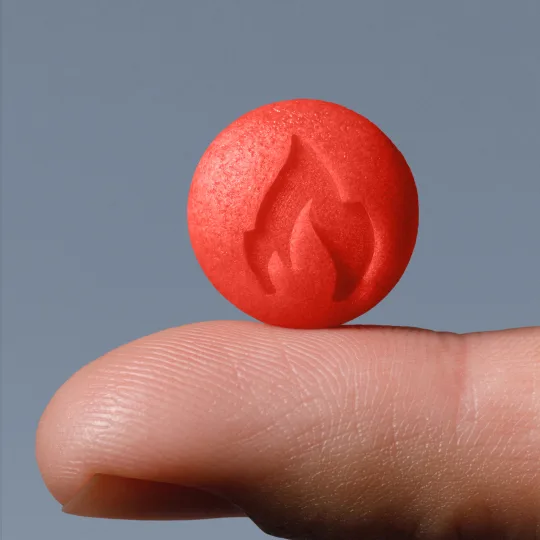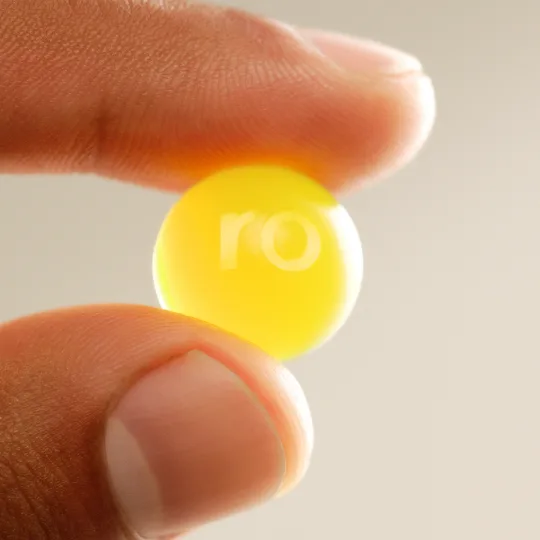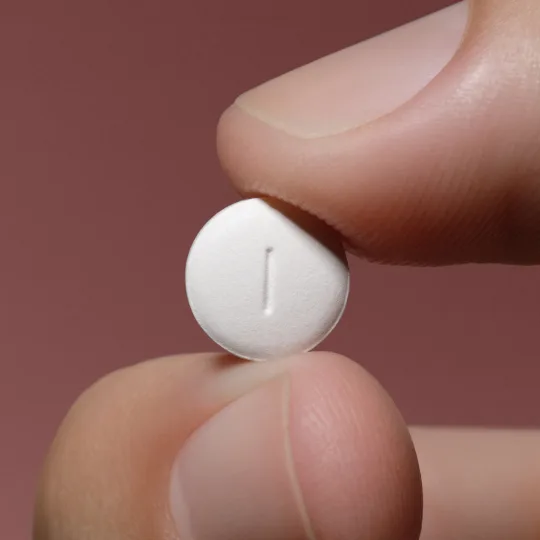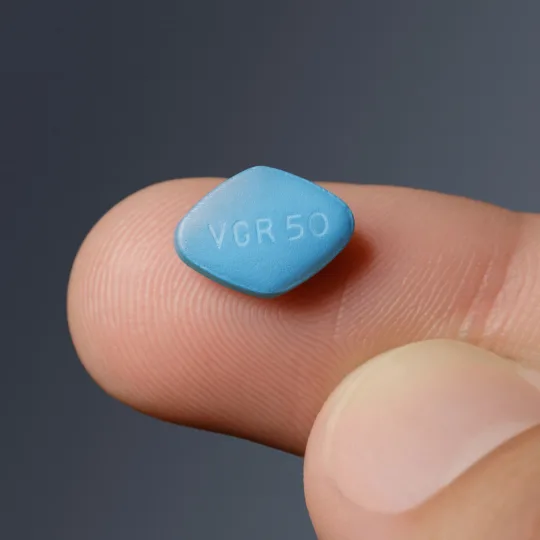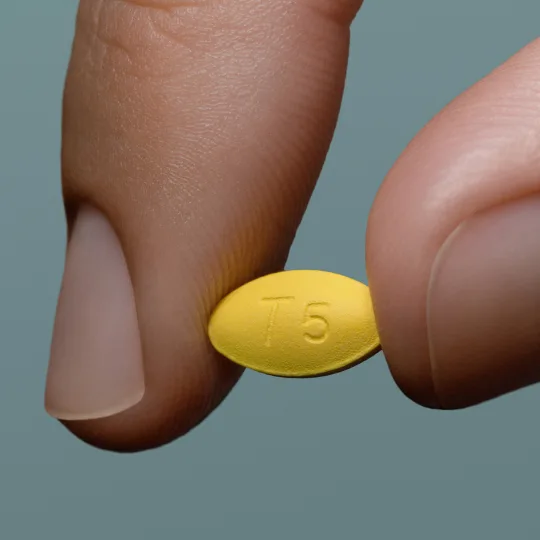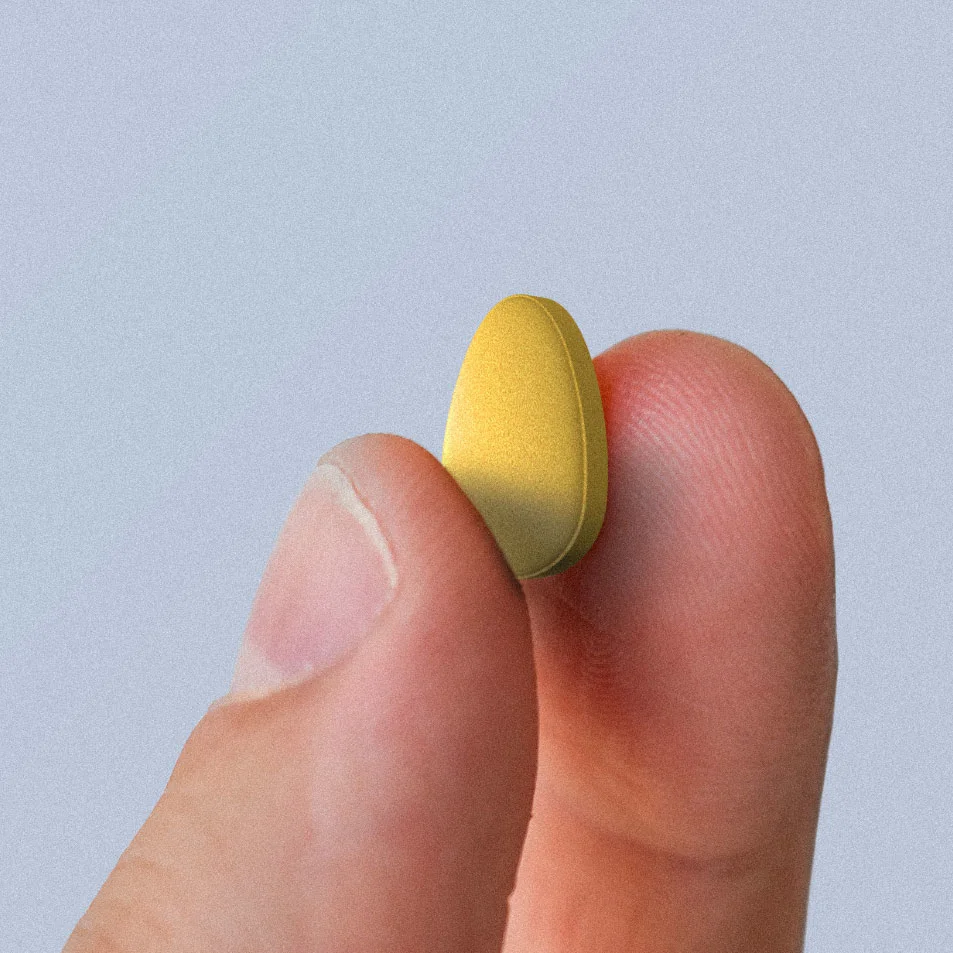Key takeaways
Cialis can last up to 36 hours with as-needed doses, offering a wide window of flexibility.
How long Cialis works depends on the dose you take and how your body processes it. Lower-dose daily options are also available, offering a steady level of the medication in your system so you're always ready for sex.
Choosing the right dosing pattern for Cialis—daily or as-needed—depends on your lifestyle, frequency of sexual activity, and personal preferences. Your healthcare provider can help you decide which approach works best for you based on your health and specific needs.
If Cialis doesn’t seem to be working as well as you’d hoped, your provider can help you explore adjustments to your treatment or consider other options.
Here's what we'll cover
Here's what we'll cover
Here's what we'll cover
Key takeaways
Cialis can last up to 36 hours with as-needed doses, offering a wide window of flexibility.
How long Cialis works depends on the dose you take and how your body processes it. Lower-dose daily options are also available, offering a steady level of the medication in your system so you're always ready for sex.
Choosing the right dosing pattern for Cialis—daily or as-needed—depends on your lifestyle, frequency of sexual activity, and personal preferences. Your healthcare provider can help you decide which approach works best for you based on your health and specific needs.
If Cialis doesn’t seem to be working as well as you’d hoped, your provider can help you explore adjustments to your treatment or consider other options.
When you're dealing with erectile dysfunction (ED), it's natural to have a lot of questions before starting or while you are on treatment. One common question for anyone considering ED treatment such as Cialis (tadalafil) is often: How long does Cialis last?
Whether you're planning a date night or just want to feel more in control of your sex life, understanding what to expect can make a big difference in finding the right treatment.
Cialis is known for its flexibility—it can work for up to 36 hours, giving it the nickname "the weekend pill." But how quickly does it kick in? Does the dosage make a difference? And most importantly, how can you make it work best for your needs?
If you’ve been wondering how Cialis fits into your life, we’re here to break it all down in a way that’s easy to understand.
How long does tadalafil (Cialis) last?
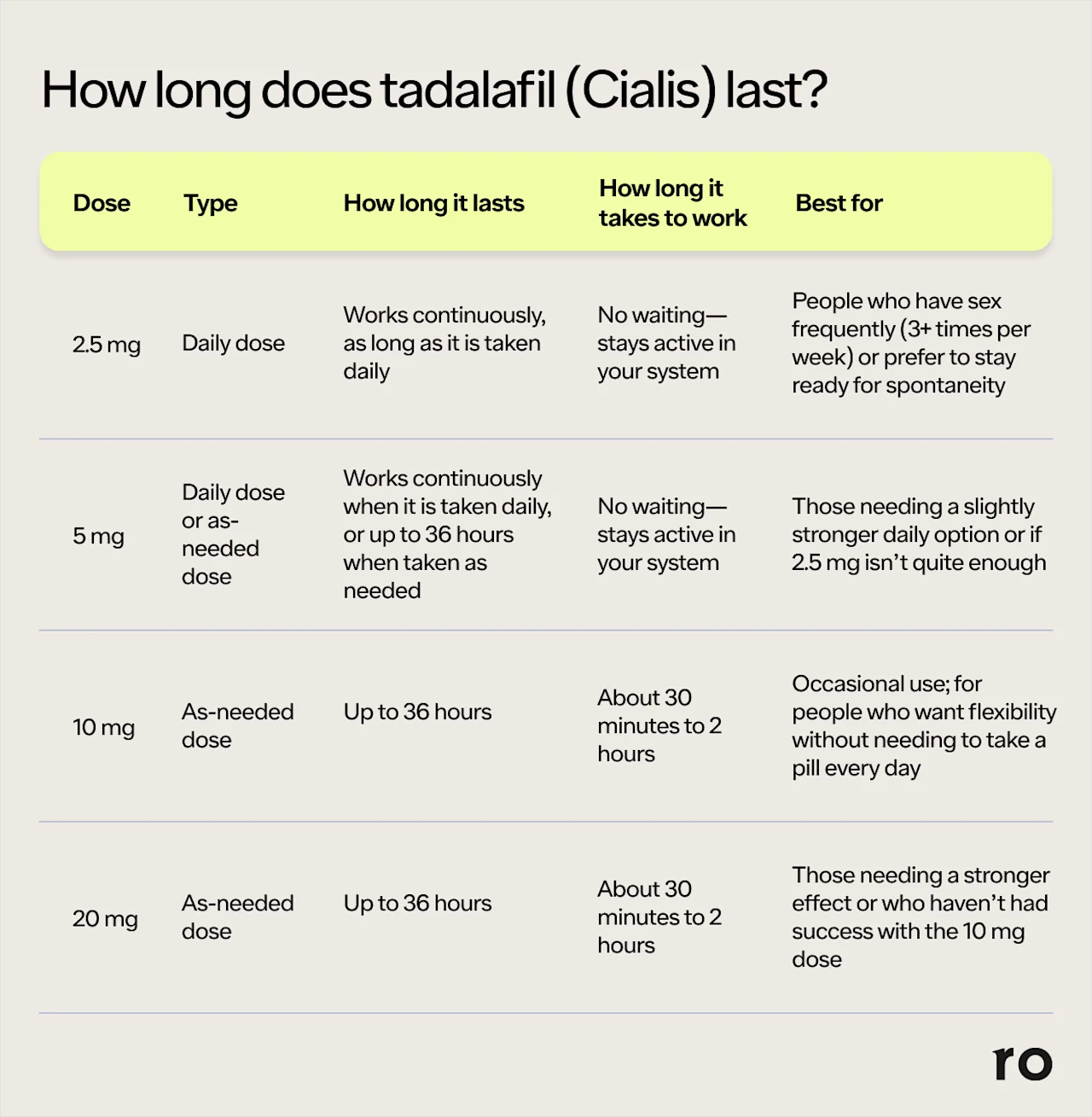
Tadalafil can help you get and keep an erection for up to 36 hours when taken as needed at 5 mg, 10 mg or 20 mg. With daily doses of 2.5 mg or 5 mg, it can work continuously, so you’re ready for sex at any time. The exact duration can vary based on your health and how your body processes it.
Here's a breakdown of each dose and its expected duration:
How long does 2.5 mg of tadalafil last? (Daily dose)
This low-dose option is designed for once-daily use. It can build up a consistent level in your system, so you’re always ready for sex without needing to time your dose around when you’re expecting to have sex. The effects can be continuous as long as you take it daily at the same time.
How long does 5 mg of tadalafil last? (Daily or as-needed dose)
Similar to the 2.5 mg dose, this daily dose can help keep steady levels of the medication in your body. It may be recommended if the 2.5 mg dose isn’t providing sufficient results.
It can also be prescribed as an as-needed dose if the standard starting dose of 10 mg is too strong. Your healthcare provider might recommend 5 mg as a lower-dose, flexible option based on your individual needs.
How long does 10 mg of tadalafil last? (As-needed)
Typically, this is the starting dose for as-needed Cialis. It usually begins working within 30 minutes to 2 hours and can remain effective for up to 36 hours. Its extended duration makes it a flexible choice for occasional use without needing to take it daily.
How long does 20 mg of tadalafil last? (As-needed)
This is the strongest dose of Cialis for as-needed use. Like the 10 mg dose, it usually kicks in within 30 minutes to 2 hours and can last up to 36 hours. This dose may be prescribed for those who aren’t seeing results at lower doses.
Why does it last so long?
Cialis can last so long because of its active ingredient, tadalafil, which can stay in your system longer than most other ED prescriptions. We will get into this later on in the article, but the half-life of tadalafil is about 17.5 hours.
Cialis doesn’t work exactly the same for everyone. Other factors that may influence how long Cialis lasts for you include:
Your dose
Lifestyle
Frequency of use
Underlying health conditions
Additional medications
As always, discuss with your healthcare provider which dosage is best for your situation. Factors such as your metabolism and any medications you’re taking can influence how well Cialis works and how long it lasts.
Your choice of Cialis dosage and regimen isn’t just about effectiveness—it’s also about finding a treatment that works for your life. Understanding how each option works can help you align your treatment with your lifestyle and sexual activity.
Daily Cialis vs. as-needed Cialis: how to choose
The choice between daily and as-needed Cialis (tadalafil) often depends on your lifestyle, how frequently you have sex, and your preferences for planning versus spontaneity.
Both options can effectively treat ED, but one may align better with your needs.
How often are you having sex?
If you’re having sex several times a week, daily Cialis might be the better choice. With its consistent, low dose, you’ll always be ready without needing to plan ahead or time your pill.
If your sexual activity is less frequent or more predictable—for example, mainly on weekends—Cialis as needed could be a good fit. Since it can last up to 36 hours, it gives you plenty of flexibility without requiring daily medication.
Is spontaneity important?
Daily Cialis can take the guesswork out of timing. It keeps you ready for sex whenever the moment feels right. But if you’re okay with a little planning, as-needed Cialis is still a great option. Its long-lasting effects give you plenty of time to enjoy yourself without feeling rushed.
Have you had side effects with Cialis?
Daily Cialis is prescribed in lower doses, which might reduce the likelihood or intensity of side effects compared to the higher doses used for as-needed Cialis. But because the medication is always in your system when taken daily, some side effects such as headache might last longer (if you are experiencing them).
Ultimately, whether daily or as-needed Cialis is right for you depends on how it fits into your life. Your healthcare provider can guide you toward the option that best matches your health and preferences.
How long does it take for Cialis to start working?
Cialis usually starts working within 30 minutes to an hour, but this timing can vary depending on how your body processes the medication, when you take it, and other health factors. Some people might feel its effects faster, while others may need a little more time.
Since Cialis can stay active in your system for up to 36 hours, you don’t have to stress about precise timing. Instead, you can focus on having sex when it feels right for you, without the pressure of a countdown.
If you don’t notice results immediately and are wondering how long it takes for Cialis to kick in, don’t worry. It’s common to need a few tries to find what works best. This might mean adjusting when you take it, discussing the option of a different dosage with your healthcare provider, or simply giving your body time to adapt.
How long does Cialis stay in your system?
Cialis (tadalafil) stays in your system for a relatively long time compared to other erectile dysfunction medications. Exactly how long depends on the dose you take and how your body processes it. Let’s break it down:
What does “half-life” mean?
The term "half-life" refers to how long it takes for your body to process and eliminate half of the medication from your bloodstream. For Cialis, the half-life is about 17.5 hours. This means that after 17.5 hours, only half the medication remains in your body, and it keeps decreasing from there.
How long do the effects last?
Most people feel the effects of Cialis for about 24 to 36 hours after taking a single as-needed dose.
How does Tadalafil dosage affect duration?
The dosage pattern of Cialis (tadalafil) you take can impact how long the medication remains effective. Let’s break it down by dosage to understand how each option works.
Daily dosages (2.5 mg and 5 mg)
With a daily dose, Cialis can build a consistent level in your system over time. Since you’re taking it every day, the medication doesn’t fully leave your body, allowing you to maintain a steady concentration. This means you can get normal erections with sexual stimulation whenever the moment arises without worrying about timing a pill.
Additionally, 5 mg can be used as an as-needed dose if 10 mg is too strong or causes side effects. This lower dose provides more flexibility while still offering effective results.
Duration: Continuous as long as you take it daily or up to 36 hours when taken as needed.
Best for: People who have sex frequently (three or more times a week), prefer spontaneity, or need a lower as-needed dose due to sensitivity to higher strengths.
10 mg dosage (as needed)
The 10 mg dose is often the starting point for people using Cialis as needed. It can provide effective results for up to 36 hours, making it a flexible option if you’re not sure exactly when you’ll need it.
Duration: About 24 to 36 hours for most people.
Best for: Occasional use when you want a reliable window of effectiveness.
20 mg dosage (as needed)
The 20 mg dose is the strongest available and may provide a longer duration of effectiveness compared to lower as-needed doses.
Some people find that this larger dose helps them achieve better results, but the exact timing can vary depending on how your body processes it.
Duration: Up to 36 hours, with occasional reports of effectiveness beyond that.
Best for: Those who need a stronger dose for consistent results or have not seen success with 10 mg.
Dosage discussions should always be guided by your healthcare provider––they can help determine which option is best based on your needs and medical history.
How can you get maximum effect from Cialis?
To make sure you can get the best effect from Cialis, it’s important to take it the right way and pay attention to factors that can influence its performance. Here’s how you can get the most out of your treatment:
Timing and arousal: Cialis helps you get an erection, but it only works when you’re sexually aroused. It doesn’t cause erections automatically—you need stimulation for it to take effect.
If you’re taking it as needed, time your dose about 30 minutes to an hour before sex. For daily use, take your dose at the same time every day.
How does Cialis interact with other substances?
Certain things may interfere with Cialis’s effectiveness. For example:
Grapefruit juice: This can affect how your body processes the medication, potentially increasing side effects.
Alcohol: Drinking alcohol while taking Cialis may cause a drop in blood pressure, leading to dizziness or lightheadedness. Heavy drinking (8+ drinks per week for women, 15+ for men) can increase this risk, while moderate drinking (1–2 drinks weekly) is typically considered safe.
Other medications: Make sure to inform your healthcare provider of everything you’re taking to avoid interactions that might potentially be harmful to your health.
Underlying health issues: Conditions like diabetes, high blood pressure, or low testosterone can make it harder for Cialis to work. Managing these issues with your healthcare provider can improve your overall sexual health.
Lifestyle changes: Quitting smoking, exercising regularly, and eating a balanced diet can support better blood flow and circulation, which are important for achieving and maintaining erections. These lifestyle improvements may complement the effects of Cialis, helping your body respond more effectively to the medication.
If you’re still not seeing the results you want, don’t hesitate to reach out to your healthcare provider. They can help adjust your treatment plan or explore other options to ensure the best outcomes for you.
Does Cialis keep you hard after coming?
No, Cialis helps you get an erection when aroused, but it doesn’t keep you hard after ejaculation. You’ll need to be aroused again to achieve another erection.
After you orgasm, your body enters what’s called the refractory period—a natural “reset” phase where sexual stimulation doesn’t lead to another erection or climax. Although this is a somewhat poorly understood concept, the refractory period varies widely from person to person: Some may only need a few minutes, while others might require hours.
So, does Cialis help you skip the refractory period entirely? Not exactly. There’s no evidence that Cialis (or any other ED treatment) eliminates this phase completely.
That said, erections lasting longer than four hours are known as priapism. This is considered a medical emergency that can cause permanent damage if untreated. If you ever experience a prolonged erection, seek immediate medical attention.
How long does Cialis last vs. other ED treatments?
When you’re deciding on Cialis vs. Viagra, or other ED pharmaceutical options, it’s not just about what works—it’s about what works for you. Maybe you’re looking for something reliable to help plan for a special night, or perhaps you’d rather have the freedom to be ready anytime without overthinking it.
Different medications offer different timelines, and finding the right fit can make all the difference in your comfort and confidence. Let’s explore how Cialis compares to other options to help you find what feels right.
Cialis (tadalafil): up to 36 Hours
Cialis can provide effects lasting up to 36 hours, offering a broad window for flexibility. It’s best for those who value spontaneity or prefer not to time their dose too closely to sexual activity.
It’s also available as a daily low-dose option that allows the medication to stay in your body so that you can be ready for sex at any time.
Viagra (sildenafil): 4 to 8 Hours
Viagra (sildenafil) is typically effective for 4 to 8 hours. It generally works best on an empty stomach and its effects may be delayed if it’s taken after a high-fat meal.
It’s best suited for those who want a reliable option for planned sexual activity, though it requires some advance planning.
Vardenafil: 4 to 5 Hours
Vardenafil has effects for 4 to 5 hours (though can work up to 8 hours in some people) and typically works within 15 to 60 minutes. This medication is well-suited for those who want a fast-acting ED pill similar to Viagra but may prefer an option with a faster onset of action (depending on their body’s response).
Stendra (Avanafil): 4 to 6 Hours
Stendra works quickly, often within 15 to 30 minutes, and lasts up to 4 to 6 hours. Stendra is a good choice for those looking for a quick-acting medication.
Daily Rise Gummies (tadalafil): continuous effect
Daily Rise Gummies offer a convenient alternative to pills, providing the benefits of daily Cialis in a gummy form.
Each gummy contains 7 mg of tadalafil, the same active ingredient as Cialis. When taken daily, these gummies can help build a steady level of tadalafil in your system.
It’s best for those who prefer spontaneity and an easy, pill-free way to manage ED.
Ro Sparks (sildenafil + tadalafil)
Ro Sparks combines the active ingredients of Viagra and Cialis in one dissolvable tablet for both fast and long-lasting effects. Each tablet contains 55 mg of sildenafil (Viagra) and 22 mg of tadalafil (Cialis). It can start working within 15 minutes, and its effects can last up to 36 hours.
It’s best for those who want the sweet spot combination of fast results and long-lasting effects.
Though this particular formulation is not FDA-approved, it is composed of active ingredients that have been FDA-approved for erectile dysfunction.
Whether you’re looking for quick results, long-lasting effects, or everyday readiness, there’s a treatment option to meet your needs. Always consult your healthcare provider to determine the best choice for you.
What if Cialis isn’t working for me?
It’s frustrating when a medication doesn’t seem to deliver the results you’re hoping for. You might be wondering, “How long does tadalafil last, and will it work for me?” There are plenty of factors to consider and adjustments you can make if Cialis isn’t working for you.
Here’s the TL;DR version
Make sure you’re taking Cialis properly.
Consider a dosage adjustment.
Address performance anxiety.
Explore other ED treatment options.
Talk to your healthcare provider about underlying health conditions.
Give it time to work.
Make sure you’re taking Cialis properly: If you’re taking as-needed Cialis, ensure you’re taking it at least 30 minutes before sexual activity. For daily doses, consistency is key—take it at the same time every day to maintain a steady level in your system.
Consider a dosage adjustment: Cialis comes in different strengths, and finding the right one can make all the difference. If the 10 mg dose isn’t working, your healthcare provider might recommend increasing it to 20 mg. Conversely, if you’re experiencing side effects, a lower dose may be more suitable. Always consult your healthcare provider before making any changes to your dosage.
Address performance anxiety: Try taking the medication by yourself first in a low-pressure environment to see how your body responds without the added stress of a partner. Relaxation techniques, like mindfulness or deep breathing, can help reduce anxiety, and open communication with your partner can create a more supportive atmosphere.
Explore other ED treatment options: Cialis might not be the best option for you, but that doesn’t mean other options won’t work. Studies show that up to 50% of people who don’t initially respond to one ED treatment will respond to another one.
Medications like sildenafil (Viagra) or Ro Sparks, which combines sildenafil and tadalafil, could provide better results depending on your individual body.
Talk to your healthcare provider about underlying health conditions: ED is often a symptom of other health issues. These conditions can affect blood flow, hormone levels, or damage nerves, making it harder for Cialis to work as expected.
Give it time to work: It’s completely normal to need time to adjust to a new medication and to feel more comfortable during sexual activity. Be patient and allow your body to adapt.
By considering these factors and working with your healthcare provider, you can find the best path forward to effectively manage ED.
What to keep in mind when taking Cialis
ED affects millions of men. The truth is that while Cialis helps many of them, it’s not always the solution, especially if your ED is a result of stress, low self-esteem, depression, performance anxiety, or other mental health issues.
That’s why the list of erectile dysfunction treatments includes therapy and other mental health support.
Side effects
Like any medication, Cialis can cause side effects, though they’re typically mild and manageable. Here are the most common ones:
Facial flushing and sweating
Headaches
Nausea, indigestion, or diarrhea
Stuffy nose
Muscle aches
Back pain
Some rare but serious side effects can occur while taking Cialis. If you notice any of these side effects, stop using the medication and contact your healthcare provider:
Vision changes or loss: Sudden vision changes or loss might indicate a condition called non-arteritic anterior ischemic optic neuropathy (NAION).
Hearing loss: A sudden decrease or loss of hearing, sometimes with ringing in the ears (tinnitus), has been reported in rare cases.
Priapism: An erection lasting longer than four hours requires immediate attention to prevent potential complications.
Since these effects can vary from person to person, it’s important to try different options and figure out the one that works best for you by continuing to discuss it with your healthcare provider.
Have better sex with Ro
Cialis drug interactions
Certain medications and substances can interact with Cialis, so it’s essential to be aware of what to avoid:
Nitrates (e.g., nitroglycerin): Combining Cialis with nitrates can cause a dangerous drop in blood pressure. If you’re using nitrates for chest pain, inform your healthcare provider before starting Cialis.
Nitrites ("poppers"): Like nitrates, nitrites relax blood vessels and can lead to dangerously low blood pressure when combined with Cialis.
Remember that this list is not exhaustive, and you should share all the medications you are taking with your healthcare provider, especially when you take medications for high blood pressure or other heart problems.
Always let your healthcare provider know about any medications, supplements, or recreational substances you’re using to avoid harmful interactions.
General advisories
Follow the prescribed dose: Stick to the dose recommended by your healthcare provider. Taking more than prescribed may not improve results and could increase the risk of side effects.
Monitor for side effects: Be mindful of how your body reacts to the medication. Report any unusual symptoms, even if they seem minor, to your healthcare provider.
Be patient: Results may not be immediate or consistent at first. It’s normal for it to take a few tries before you experience the full potential of the treatment.
Keep your healthcare provider informed: Let them know about any new medications, supplements, or health conditions that arise while taking Cialis to ensure it remains safe and effective for you.
Consider mental health support: While Cialis can be effective for many, it may not address issues related to stress, performance anxiety, low self-esteem, or depression, which can contribute to ED. Therapy or mental health support can be an important part of treating ED when these factors are at play.
Bottom line
Cialis is a versatile option for managing ED, and its long-lasting effects—up to 36 hours for as-needed doses—make it a good choice for many people. Whether you prefer the flexibility of taking it only when needed or the convenience of a daily dose, there’s an option to suit your lifestyle.
If you have sex frequently or value spontaneity, then taking daily Cialis or Daily Rise Gummies regularly can help keep you ready for sex at any time by maintaining a steady level of tadalafil in your system.
For those who don’t need daily medication, as-needed doses of 10 mg or 20 mg offer a reliable window of effectiveness without requiring everyday use.
How long Cialis lasts can vary depending on your health, metabolism, and the dose you’re taking. If you’re finding it doesn’t last as long as you’d like, or if you’re not sure which option fits your needs best, it’s worth reaching out to your healthcare provider or connecting with one of Ro’s telehealth providers.
With the right option and a little guidance, you can feel more confident and in control of your sex life.
DISCLAIMER
If you have any medical questions or concerns, please talk to your healthcare provider. The articles on Health Guide are underpinned by peer-reviewed research and information drawn from medical societies and governmental agencies. However, they are not a substitute for professional medical advice, diagnosis, or treatment.
Cialis Important Safety Information: Read more about serious warnings and safety info.
Viagra Important Safety Information: Read more about serious warnings and safety info.
References
Bailey, D. G., Dresser, G., & Arnold, J. M. (2013). Grapefruit-medication interactions: forbidden fruit or avoidable consequences? Canadian Medical Association Journal, 185(4), 309–316. doi: 10.1503/cmaj.120951. Retrieved from https://pmc.ncbi.nlm.nih.gov/articles/PMC3589309/
Ciaccio, V. & Di Giacomo, D. (2022). Psychological Factors Related to Impotence as a Sexual Dysfunction in Young Men: A Literature Scan for Noteworthy Research Frameworks. Clinics and Practice, 12(4), 501–512. doi: 10.3390/clinpract12040054. Retrieved from https://pmc.ncbi.nlm.nih.gov/articles/PMC9326597/
DailyMed. (2022). Tadalafil tablet, coated. Retrieved from https://dailymed.nlm.nih.gov/dailymed/drugInfo.cfm?setid=abcb2cda-9b3f-45f6-ad5f-c2370b0dd114
DailyMed. (2017). Viagra- sildenafil citrate tablet, film-coated. Retrieved on Nov. 5, 2024 from https://dailymed.nlm.nih.gov/dailymed/lookup.cfm?setid=a2a9f459-e692-4e85-83b0-a35fbf35e91b
Dhaliwal, A. & Gupta, M. (2023). PDE5 inhibitors. StatPearls. Retrieved from https://www.ncbi.nlm.nih.gov/books/NBK549843/
Eli Lilly & Company. (2023). Cialis (tadalafil) tablets, for oral use: Highlights of prescribing information. Retrieved from https://pi.lilly.com/us/cialis-pi.pdf
Leslie, S. W. & Sooriyamoorthy, T. (2024). Erectile dysfunction. StatPearls. Retrieved from https://www.ncbi.nlm.nih.gov/books/NBK562253/
Maiorino, M. I., Bellastella, G., & Esposito, K. (2015). Lifestyle modifications and erectile dysfunction: what can be expected?. Asian Journal of Andrology, 17(1), 5–10. doi: 10.4103/1008-682X.137687. Retrieved from https://pubmed.ncbi.nlm.nih.gov/25248655/
Padda, I. S. & Tripp, J. (2023). Phosphodiesterase inhibitors. StatPearls. Retrieved from https://www.ncbi.nlm.nih.gov/books/NBK559276/
Rew, K. T. & Heidelbaugh, J. J. (2016). Erectile Dysfunction. American Family Physician, 94(10), 820–827. Retrieved from https://www.aafp.org/pubs/afp/issues/2016/1115/p820.html
Silberman M., Stormont G., Leslie S.W., et al. (2023). Priapism. StatPearls. Retrieved from https://www.ncbi.nlm.nih.gov/books/NBK459178/
Smith-Harrison, L. I., Patel, A., & Smith, R. P. (2016). The devil is in the details: An analysis of the subtleties between phosphodiesterase inhibitors for erectile dysfunction. Translational Andrology and Urology, 5(2), 181–186. doi: 10.21037/tau.2016.03.01. Retrieved from https://pmc.ncbi.nlm.nih.gov/articles/PMC4837309/
Wright, D. F., Winter, H. R., & Duffull, S. B. (2011). Understanding the time course of pharmacological effect: A PKPD approach. British Journal of Clinical Pharmacology, 71(6), 815–823. doi: 10.1111/j.1365-2125.2011.03925.x. Retrieved from https://bpspubs.onlinelibrary.wiley.com/doi/10.1111/j.1365-2125.2011.03925.x



